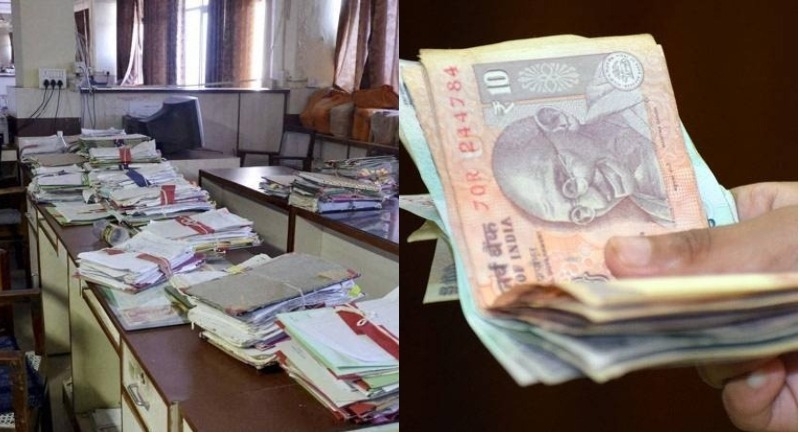Lok Sabha gives green signal to Prevention of Corruption Act; bribe givers, takers to be punished
New Delhi, July 25: The Lok Sabha on Tuesday unanimously passed the Prevention of Corruption (Amendment) Bill, 2018 that provides for punishment to bribe givers and takers, and extends prior nod for a prosecution to former public officials.

The Prevention of Corruption (Amendment) Bill, 2018 provides for imprisonment from three to seven years, besides fine, to those convicted of taking bribes. The bill also removes the provision that protected bribe givers from prosecution for statements they make during a corruption trial. So according to the bill, bribe givers can be punished with imprisonment up to seven years, fine, or both.
The bill also provides for prior approval to be sought before an investigation is initiated against any government officials. However, the earlier version made approvals necessary only for inquiries against officials above the rank of a joint secretary.
The legislation also provides immunity from arrest to all officers, as against the previous provision of immunity to officers above the level of a joint secretary. The amendment also seeks to set a time frame for a court to decide on the matter.
Notably, the bill was passed after MoS Jitendra Singh gave a reply to all the doubts raised by other lawmakers in the house. He said that the Bill provides safeguards to officers who perform their duties with honesty. "We have brought amendments so that honest performing officer does not get intimidated or his initiatives get killed," he added.
Terming it as historic legislation, Jitendra Singh said that the bill has provisions to ensure speedy trial in corruption cases. "For any corruption case, we will bring guidelines for a decision to be ordinarily given in two years," he added. The minister also noted that the government is fully aimed at taking strict measures against corruption while also ensuring good work atmosphere.
Many members who took part in the debate stressed on the need for electoral reforms to curb corruption. Some opposition members accused the government of diluting the anti-corruption act through the amendments.
On July 19, the Rajya Sabha passed amendments to the Prevention of Corruption Act, 1988, which will make giving bribes to a public servant an offence. The amendment bill had been first introduced by the Congress-led government in 2013.
HIGHLIGHTS OF THE BILL:
- The Prevention of Corruption (Amendment) Bill, 2013 amends the Prevention of Corruption Act, 1988.
- The Act covers the offence of giving a bribe to a public servant under abetment. The Bill makes specific provisions related to giving a bribe to a public servant, and giving a bribe by a commercial organisation.
- The Bill redefines criminal misconduct to only cover misappropriation of property and possession of disproportionate assets.
- The Bill modifies the definitions and penalties for offences related to taking a bribe, being a habitual offender and abetting an offence.
- Powers and procedures for the attachment and forfeiture of property of public servants accused of corruption have been introduced in the Bill.
- The Act requires prior sanction to prosecute serving public officials. The Bill extends this protection to former officials.
KEY ISSUES AND ANALYSIS
- The Bill makes giving a bribe a specific offence. There are diverging views on whether bribe giving under all circumstances must be penalised. Some have argued that a coerced bribe giver must be distinguished from a collusive bribe giver.
- The Bill has deleted the provision that protects a bribe giver from prosecution, for any statement made by him during a corruption trial. This may deter bribe givers from appearing as witnesses in court.
- The Bill has replaced the definition of criminal misconduct. It now requires that the intention to acquire assets disproportionate to income also be proved, in addition to possession of such assets. Thus, the threshold to establish the offence of possession of disproportionate assets has been increased by the Bill.
- By redefining the offence of criminal misconduct, the Bill does not cover circumstances where the public official: (i) uses illegal means, (ii) abuses his position, or (iii) disregards public interest and obtains a valuable thing or reward for himself or another person.
- Under the Act, the guilt of the person is presumed for the offences of taking a bribe, being a habitual offender or abetting an offence. The Bill amends this provision to only cover the offence of taking a bribe.